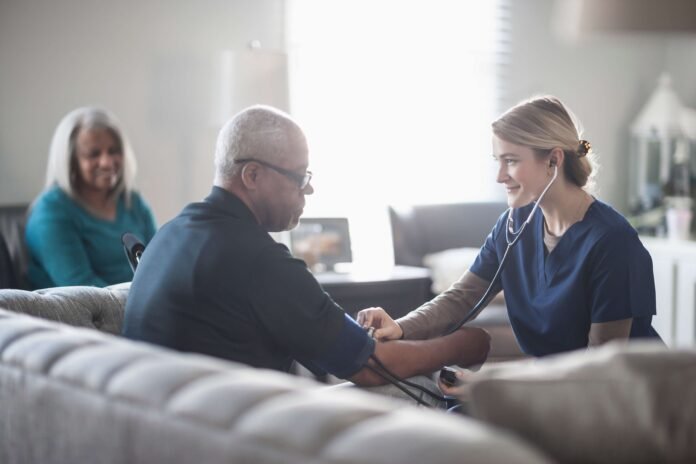Nurses and healthcare workers play a vital role in keeping our communities healthy, but if you’re in the medical field and not managing your finances as diligently as you care for your patients, you might be overlooking potential savings at tax time. Missing out on these savings could mean losing hundreds of dollars certainly not ideal. To help you with the complexities of tax deductions available to you, we’ve created this guide titled Tax Deductions for Nurses and Health Professionals. It outlines what you can and cannot claim, ensuring you’re well-informed.
Understanding these deductions is essential, especially when considering options like the HMRC healthcare worker tax rebate. This rebate can provide significant relief by reimbursing certain work-related expenses. By staying up to date with your financial responsibilities, you can maximise your tax returns and secure the benefits you deserve, allowing you to focus on delivering exceptional patient care.
Uniforms and Protective Clothing
The cost of uniforms and protective clothing which healthcare professionals have to incur may sometimes be allowed as tax deductions. Among these will include scrubs, lab coats, and specialty shoes that meet health and safety requirements. These are claimed when bought personally. However, one should keep all receipts because these will serve as a record of your purchase. The cost of cleaning or any upkeep of these outside of your employer’s benefit can also be claimed. In order to successfully file, ensure that you keep track of all such expenses so that you can explain your spending when it is time to pay taxes.
Healthcare workers can claim a variety of tax deductions that help reduce their taxable income, ultimately saving them money. Common deductions include unreimbursed medical expenses, which can encompass costs for uniforms, equipment, and supplies necessary for their work. They may deduct continuing education expenses related to their profession, including courses, seminars, and certifications.
Travel costs for work-related transportation and mileage can also be claimed, particularly for those visiting patients or attending off-site events. Furthermore, healthcare professionals may deduct certain licensing and professional membership fees. It’s important for these workers to keep thorough records and receipts to substantiate their claims, ensuring they maximize their eligible tax benefits.
Continuing Education and Professional Development
To stay abreast of the continually changing health-care environment, many professionals pursue postgraduate education and training. Courses, seminars, and workshops, which might enhance your skills or qualification, generally fall within tax-deductible expenses. Often included are conference registration fees and travel costs associated with attending a conference. Spending on education and training contributes to career development while reducing your taxable income. All course outlines and receipts should be kept to aid in the estimation of the deductions.
Medical Supplies and Equipment
Medical practitioners usually purchase their equipment and medical supplies. This includes stethoscopes and other diagnostic apparatus to specific instruments or tools needed for a specific role. If items are only used at work, then this can be a tax deduction. You should keep a record of cost and usage of each, so you can show that the items have been used for professional purposes. Items where a proportion of expenditure will be on personal things. For example, may be apportioned and taken care of when apportioning such costs.
Travel Costs
Healthcare professionals traveling between places to provide work or to a patient home or training event may claim associated travel costs. This would include mileage costs, public transport fares, parking fees, and accommodation when overnight stays are necessary. Keep a good travel log to support these types of claims, as it will more than likely detail the purpose and distance traveled. Take some time to learn about ATO guidelines regarding claiming travel expenses so you can claim accurately.
Work-Related Subscriptions and Memberships
Many health professionals have professional memberships in organizations or subscriptions to industry-specific journals/magazines that are part of professional development. Dues to professional associations or industry publications can also be subscribed to and should be taken as tax-deductible expenses. Often these prove useful and beneficial in terms of networking information that helps your practice. Make sure to keep receipts and record the relevance of such subscriptions to your job, which helps to make a good case for yourself in tax audit.
Conclusion
Tax deductions aid in financial planning for healthcare workers. They recover some of the money spent on a profession. There are lots of such deductions like uniform, continuing education, medical supplies, travel, and subscriptions that healthcare workers can use to reduce their taxable income. Record-keeping is highly important, maximising these deductions. Therefore, keeping detailed receipts and other documentation will act as proof when your claims are made at tax time.
Tax laws can really change often, so it would be advisable to find a tax professional or accountant who is abreast of all healthcare-specific deductions. It not only maximizes the benefits of your pocket but will allow you to spend more time on what matters most. That is to say, providing excellent care to your patients. Visit readpots for more informative articles.

